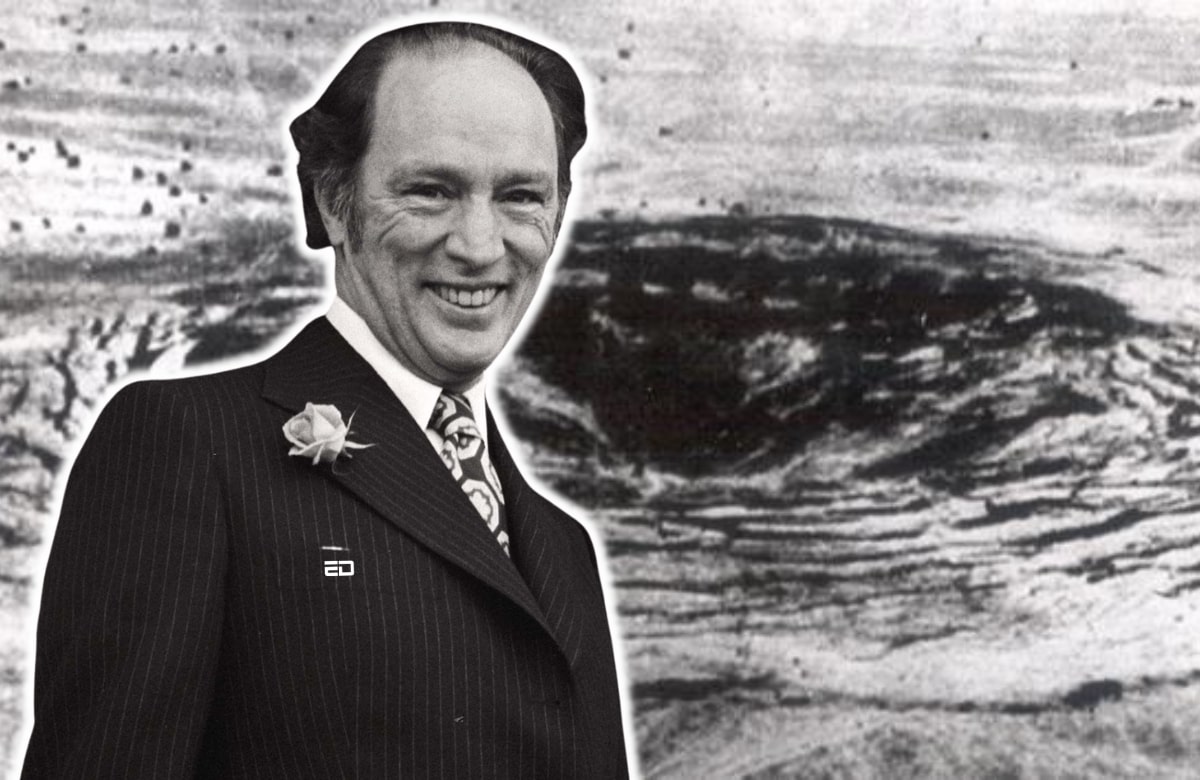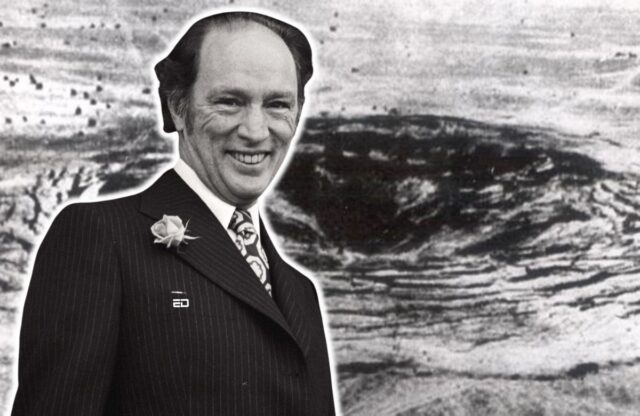Back in Time is ED’s newspaper-like column that reports an incident from the past as though it has happened just yesterday. It allows the reader to relive it several years later, on the date it had occurred.
May 18th, 1974: In a historic event that sent shockwaves around the world, India conducted its first successful nuclear bomb test, codenamed ‘Smiling Buddha,’ at the Pokhran Test Range in Rajasthan. This momentous achievement marked India’s entry into the exclusive club of nuclear-armed nations and forever altered the nation’s strategic defense history.
At 8:05 AM that fateful day, the desert sands of Pokhran bore witness to a bright flash followed by a thunderous boom as ‘Smiling Buddha’ successfully detonated, releasing energy equivalent to approximately 15 kilotons of TNT.
Under a veil of strict secrecy, ‘Smiling Buddha’ was designed and assembled by a team of Indian scientists and engineers led by Dr. Raja Ramanna, then Director of the Bhabha Atomic Research Centre.
The project received the personal oversight of Prime Minister Indira Gandhi, who recognized the strategic significance of India possessing a nuclear deterrent. This test marked a shift in India’s defense policy, which had previously been focused primarily on conventional warfare capabilities.
The international response to ‘Smiling Buddha’ was mixed. While many nations condemned the test, it underscored India’s advanced scientific capabilities and its determination to maintain strategic autonomy.
Moreover, it symbolized India’s scientific prowess and resolve to safeguard its sovereignty, showcasing its ability to develop complex technologies indigenously.
Read More: Back In Time: 47 Years Ago, Today, India’s First Nuclear Test Took Place In Pokhran
Post Scriptum
The first knot in ties came just after India’s Pokhran Nuclear test in 1974, when Canada, who provided CANDU reactors, accused India of using them for developing nuclear weapons. This accusation further strained India-Canada relations. The incident also prompted a sharp reaction from the global community and left India at loggerheads with the West.
Fast forward to the present day, and the India-Canada relationship finds itself at a crossroads. However, it is important to note that the seeds of discord were sown during the time of the ‘Smiling Buddha’ test. At that time, Canada was led by Prime Minister Pierre Trudeau. Recent events have strained diplomatic ties, leading to the expulsion of diplomats from both countries.
Canadian Prime Minister Justin Trudeau accused Indian government agents of having linkages to the killing of a Khalistani terrorist, Hardeep Singh Nijjar, which resulted in the expulsion of diplomats from both sides.
This historical grievance, coupled with contemporary political factors, has contributed to escalated tensions between the two nations. This discord has raised concerns about the future of India-Canada trade and investment ties.
Canada is the 18th largest foreign investor in India, with significant investments in various sectors. Over 600 Canadian companies operate in India, and economic relations between the two nations have been primarily driven by commercial considerations.
Experts believe that despite these recent tensions, economic ties between India and Canada may not be significantly impacted. The two countries do not compete in similar product categories but engage in trade involving complementary products.
Canadian pension funds, in particular, have made substantial investments in India, driven by India’s large market and attractive returns on investments.
Image Credits: Google Images
Feature image designed by Saudamini Seth
Sources: CNBC, The Print, The Hindu
Find the blogger: Pragya Damani
This post is tagged under: India, Canada, Smiling Buddha, nuclear test, diplomatic tensions, historical grievances, trade relations, CANDU reactors, international relations, political factors, economic ties, global politics
Disclaimer: We do not hold any right, copyright over any of the images used, these have been taken from Google. In case of credits or removal, the owner may kindly mail us.
































